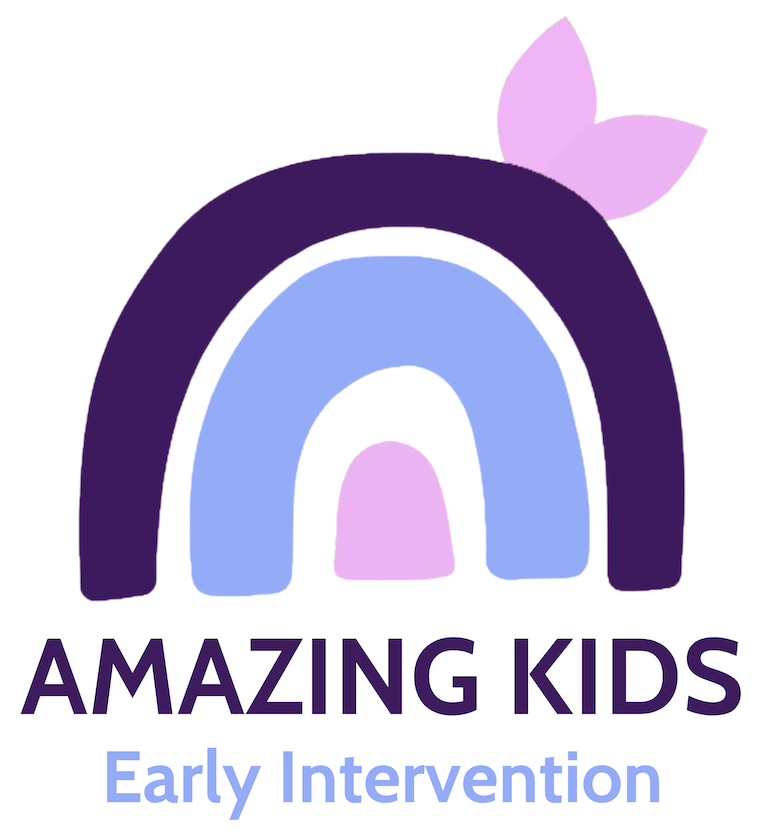For any child, play is a fundamental part of growing and discovering the world around them. It is through the sheer joy of exploration and interaction that children learn to connect with their environment, build social relationships, and develop crucial communication skills. For young autistic children under the age of five, the power of play takes on even greater significance as a gateway to nurturing their unique developmental journey. At Amazing Kids, we employ the Early Start Denver Model (ESDM) to deliver effective, evidence-based, individualised early intervention services in Melbourne, using play-based strategies to foster connections between parents and autistic children, as well as promoting their development in key areas, such as communication, social skills, and adaptive behaviours.
In this blog, we will delve into the importance of play in early autism intervention, providing insight into how play-based strategies can enhance the connection between parents and their autistic children while also cultivating essential life skills. We will explore the benefits of incorporating play into daily routines and discuss practical tips for parents and potential therapists on how to effectively utilise play to maximise developmental outcomes. Furthermore, we will highlight the role of Amazing Kids therapists in guiding families through the integration of play-based ESDM strategies, helping young autistic children reach their full potential.
By focusing on intent-driven topics, our aim is to provide valuable, unique, and relevant content that resonates with parents of young autistic children as well as potential therapists seeking guidance on fostering meaningful connections and supporting child development. This blog will showcase the vital role of play in early autism intervention, demonstrating how Amazing Kids therapists utilise play-based strategies to empower families and children as they navigate the challenges of autism.
The Importance of Play in Early Autism Intervention
Play is a cornerstone of early childhood development, offering rich opportunities for young autistic children to grow and learn:
– Building communication skills: Play encourages children to express themselves through verbal and non-verbal communication, laying the groundwork for strong language development.
– Developing social competencies: Social skills are honed through natural interactions during play, with children learning to navigate sharing, taking turns, and cooperative play.
– Enhancing emotional regulation: Through play, children can safely explore and express emotions, leading to improved emotional understanding and self-regulation.
– Improving cognitive and motor skills: Play often presents cognitive and physical challenges, helping children develop problem-solving abilities and fine and gross motor skills.
Play-Based Strategies for Strengthening Parent-Child Connections
Parents can utilise various play-based strategies to foster meaningful connections with their autistic children:
– Follow the child’s lead: Join your child in their preferred activities, letting them guide the play experience to build a strong sense of trust and enjoyment.
– Introduce joint attention: Encourage shared focus on an object or activity, promoting valuable social and communication interactions.
– Use natural reinforcement: Offer immediate, meaningful feedback during play, reinforcing the child’s efforts and achievements.
– Create opportunities for success: Design play experiences that challenge the child without overwhelming them, fostering a sense of accomplishment and pride.
Practical Tips for Parents and Therapists to Maximize Play Experiences
To effectively utilise play in early autism intervention, parents and potential therapists can employ several techniques:
– Vary play environments: Offer a diverse range of play settings – both indoor and outdoor – to encourage exploration and the development of adaptive skills.
– Establish routines: Create consistent play routines, providing predictability and structure to promote engagement and enjoyment.
– Utilise visual cues: Utilise visual supports, such as visual schedules or social stories, to facilitate transitions and clarify expectations during play.
– Encourage turn-taking and collaboration: Facilitate opportunities for cooperative play, which can help enhance social skills and empathy.
The Role of Amazing Kids Therapists in Implementing Play-Based ESDM Strategies
Amazing Kids therapists are equipped to guide families through the integration of play-based strategies within the ESDM framework:
– Customized therapy plans: Develop individualised plans that incorporate the child’s unique interests and needs, using play to engage and motivate learning.
– Collaborative partnerships: Work closely with parents, empowering them with the knowledge and strategies to integrate play into daily routines and intervention plans effectively.
– Ongoing evaluation: Monitor progress, adapting play-based strategies and intervention approaches as needed to ensure ongoing success and development.
– Professional development: Stay up-to-date with the latest research and best practices in play-based intervention for early autism, ensuring high-quality, evidence-based care.
Conclusion
Embracing the power of play is a transformative approach to early autism intervention, offering unparalleled opportunities to strengthen parent-child connections, enhance developmental outcomes, and foster overall well-being in young autistic children. Parents and therapists play vital roles in utilising play-based strategies to support the unique needs of these children, paving the way for a brighter, more connected future. By harnessing the potential of play, Amazing Kids early childhood therapists deliver exceptional, meaningful support to children and families alike, ensuring that the challenges of autism do not overshadow the joy and growth that can be achieved through play.
